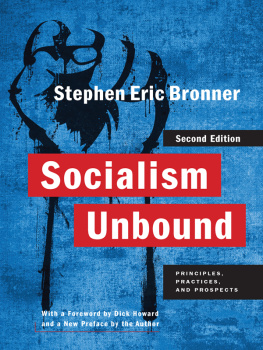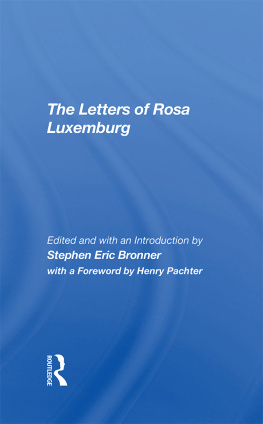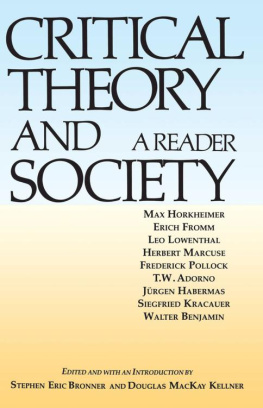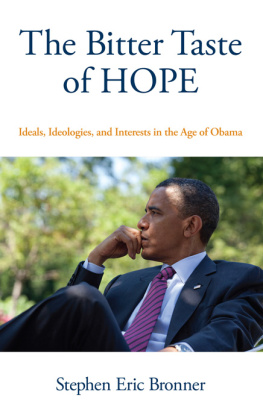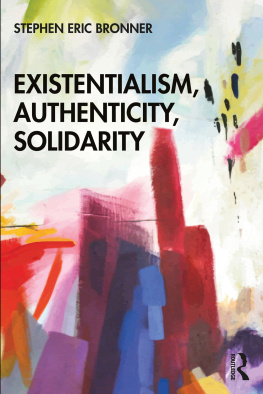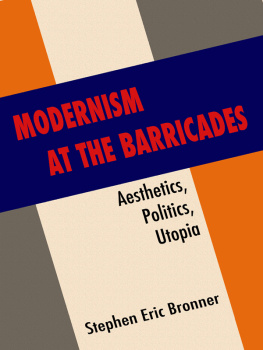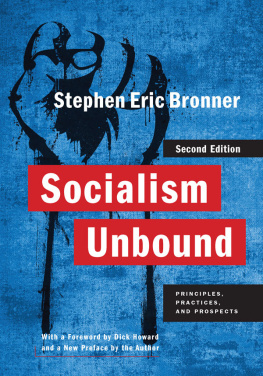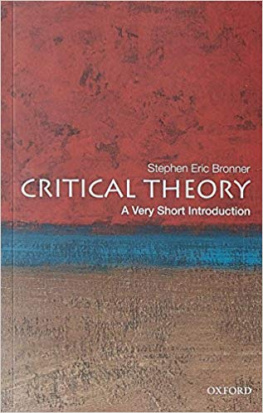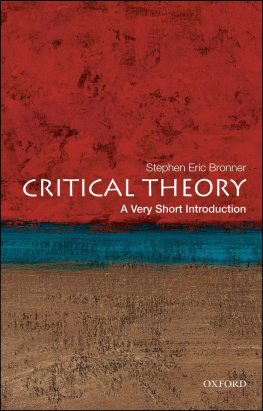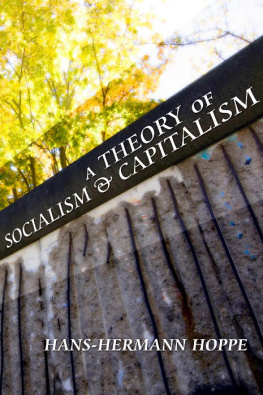Socialism Unbound
Columbia Studies in Political Thought/Political History
Columbia Studies in Political Thought/Political History
Dick Howard, General Editor
Columbia Studies in Political Thought/Political History is a series dedicated to exploring the possibilities for democratic initiative and the revitalization of politics in the wake of the exhaustion of twentieth-century ideological isms. By taking a historical approach to the politics of ideas about power, governance, and the just society, this series seeks to foster and illuminate new political spaces for human action and choice.
Pierre Rosanvallon, Democracy Past and Future, edited by Samuel Moyn (2006)
Claude Lefort, Complications: Communism and the Dilemmas of Democracy, translated by Julian Bourg (2007)
Benjamin R. Barber, The Truth of Power: Intellectual Affairs in the Clinton White House (2008)
Andrew Arato, Constitution Making Under Occupation: The Politics of Imposed Revolution in Iraq (2009)
Dick Howard, The Primacy of the Political: A History of Political Thought from the Greeks to the French and American Revolution (2010)
Robert Meister, After Evil: Human Rights Discourse in the Twenty-first Century (2011)
Paul W. Kahn, Political Theology: Four New Chapters on the Concept of Sovereignty (2011)
Stephen Eric Bronner
Second Edition
Socialism
Unbound
Principles, Practices, and Prospects
Columbia University Press New York

Columbia University Press
Publishers Since 1893
New York Chichester, West Sussex
cup.columbia.edu
Copyright 2001 Westview Press, a Member of the Perseus Books Group
Copyright 2011 Columbia University Press
All rights reserved
E-ISBN 978-0-231-52735-4
Parts of the preface appeared in an earlier form in Stephen Eric Bronner,
Socialism in America, Reader Supported News, July 21, 2010,
and Rosa in Cairo, Reader Supported News, February 8, 2011,
http://readersupportednews.org/
Library of Congress Cataloging-in-Publication Data
Bronner, Stephen Eric, 1949
Socialism unbound : principles, practices, and prospects / Stephen Eric Bronner.
2nd ed.
p. cm.(Columbia studies in political thought/Political history)
Originally published: Boulder, Colo. : Westview Press, c2001.
Includes bibliographical references and index.
ISBN 978-0-231-15382-9 (cloth : alk. paper)ISBN 978-0-231-15383-6 (pbk. : alk. paper)ISBN 978-0-231-52735-4 (ebook)
1. Socialism. 2. Communism. 3. SocialismHistory. 4. CommunismHistory. I.
Title. II. Series.
HX73.B76 2011
335.4dc22
2011004569
A Columbia University Press E-book.
CUP would be pleased to hear about your reading experience with this e-book at .
References to Internet Web sites (URLs) were accurate at the time of writing. Neither the author nor Columbia University Press is responsible for URLs that may have expired or changed since the manuscript was prepared.
To my parents,
Harry and Edith Bronner

Contents
No political thought without political history is the epigram that unites the works published in this series. Stephen Eric Bronners Socialism Unbound expands on this adage doubly His book explores the relation between contemporary socialist theory and the tradition from which it emerges. It argues that a valid ethics is possible only within the framework of a socialist politics, but that there can be no socialist politics without ethical responsibility.
What had previously bound socialism? Paradoxically, it was its vision of history as teleological that gave its adherents a blind faith in the material and moral inevitability of their victory. Relying on a one-sided reading of The Communist Manifesto, this teleological premise assumed that the long history of class struggles must move inexorably toward a final, titanic clash from which a true socialism will emerge freed from all conflict. This deterministic vision of history could be interpreted in diverse mannersas the chapters of Socialism Unbound illustrate. But the consequences were always devastating in theory as in practice. Above all, Bronner argues, this straightjacket binding socialism robbed it of both its experimental nature and its ethical conscience.
What then is the socialism that Stephen Eric Bronner wants to unbind? It is explained by means of an undogmatic and pluralistic understanding of a tradition, similar to the way in which political traditions such as liberalism have been understood. Hobbes and Locke are seen as contributing to a unified stream to which contemporary thinkers as different as Rawls, Nozik, and Taylor are heirs. Similarly, the socialist tradition has been shaped by thinkers as different as Karl Marx, Karl Kautsky, Eduard Bernstein, V. I. Lenin, and Rosa Luxemburg. None of them possesses the truth about socialism, but each illuminates a new aspiration and confronts a new set of practical problems. Each of them also illustrates the limits and the contradictions of socialism.
The elimination of teleology and the reconstitution of a socialist tradition complement one another in Socialism Unbound. There is no single essence of socialism, no finally discovered form in which all contradiction is reconciled, no ultimate overcoming of individual and social alienation. Unbound from teleology and economic determinism, socialism becomes an ethical project undertaken in constantly changing social conditions. But this ethical project is not the product of a self-sufficient subject, living apart from the world and its vicissitudes. Such ethical purity separate from political responsibility refuses to recognize the weight of institutions. It becomes another teleological vision that seeks a utopia in which necessity is overcome and contradiction eliminated.
Socialism Unbound might appear at first glance to be a book for militants, an excited manifesto announcing new terrain to conquer, promising to unleash hidden forces that had lain dormant as existing types of socialism stagnated and finally went to their graves. But its readers will not unearth a true socialism that, like the old mole that Marx liked to invoke, has been silently digging its gallery of tunnels until capitalism has no solid earth on which to stand. The book is sober, critical of old verities, but unwilling to throw away the baby with the bathwater. That is why Socialism Unbound finds its place in the series Political Thought/Political History, alongside works by Claude Lefort (Complications), Pierre Rosanvallon (Democracy Past and Future), and Martin Breaugh (The Plebian Experience, forthcoming).
Dick Howard
Socialism Unbound first appeared twenty years ago at a time when progressive intellectual tendencies were suffering aftershocks from the collapse of communism. The 1980s were dominated by President Ronald Reagan and Prime Minister Margaret Thatcher. That decade came to be known as the age of greed. Not much changed in the 1990s, which were marked by tepid reform and liberal retrenchment. Industrial production made way for new information technologies. Fierce competition for business investment generated cost cutting measures and a radical assault on the welfare state. Capitalism turned truly global, and neoliberalism became the new gospel. Many embraced the then-fashionable belief in the end of history. The left moved right. Deregulation, tax breaks for the rich, and the dismantling of social programs became the points of reference for progressive policy. President Bill Clinton called for the end of welfare as we know it, and the social democratic parties of Western Europe followed suit. On the left, there was much talk about a postmaterialist politics, a new language for radicals, and the politics of a third way that would venture beyond the supposedly outdated conflict between capital and labor or left and right. Even socialists seemed to consider socialism a thing of the past, whether of the revolutionary or the reformist variety. More was to come. Soon after the second edition of this book appeared in 2001, the events of September 11 generated a new form of reactionary politics. Neoconservatism gained the upper hand and set the stage for new imperialist adventures, as well as an even more ferocious attack on the socialist trends associated with the 1930s and the 1960s.
Next page
